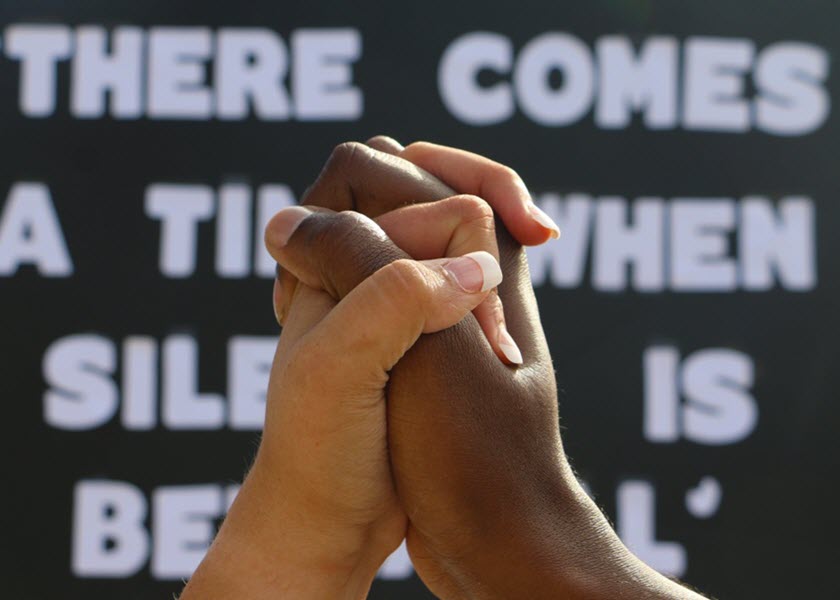Lately, there have been a lot of discussions and debates centered on civil rights. Have you taken the time to understand what it means?
What protections do your civil rights afford you, that give you cause to seek legal redress when someone else interferes with them? This article deciphers the answers to these questions and more.
What Are Civil Rights?
These are enforceable rights, liberties, and protections granted to every US citizen, that exist to ensure every person is not only treated equally and fairly but also safeguarded against overly intrusive actions by any institution, including the government.

American civil rights include:
- Freedom of assembly
- Freedom of speech
- Right against involuntary servitude
- Right to privacy
- Right to refuse to unreasonable searches and seizures
- Right to vote
Several of these rights, such as the freedom of speech, are rooted in the Bill of Rights in the United States Constitution. Even though federal law preempts local and state laws, the latter provides greater civil rights protections compared to federal law.
While the federal law provisions detail the minimum level of civil rights protections, local and state laws can go into greater detail to give citizens additional protections.
New York, for instance, has the most comprehensive civil rights laws in the entire country. The expansive statutes offer state citizens many protections that you may not find in any other piece of American legislation.
Nonetheless, other civil rights such as those in the context of housing, employment, and education are addressed in much greater detail in federal statutes and state laws. Any individual or entity that deprives a person of their federal civil rights under Title 42, Section 1983 of the United States Code, violates the “Color of State Law.”
Civil Rights Act of 1964
In certain cases, an individual’s civil rights are interfered with based on a protected characteristic related to their identity, or even their membership to a certain group. In the context of civil rights, these include traits like disability, religion, gender, color, race, origin, and even pregnancy. Different forms of discrimination in various contexts are addressed in several federal statutes. Each of these has its specific enforcement provisions that apply.
The 1964 Civil Rights Act is no doubt the most pivotal civil rights law since it was reconstructed at the end of the Civil War. The law criminalizes racial segregation and all other forms of discrimination based on religion, national origin, color, and race.
When Did Segregation End?
The Civil Rights Movement began in earnest in Montgomery, Alabama, when an African-American woman named Rosa Parks declined to give up her bus seat to a white man. She was later convicted of violating the segregation laws.
This series of events kicked off the Montgomery Bus Boycott – a civil rights protest led by a youthful church minister by the name of Martin Luther King Jr. The boycott, which lasted a year between December 1955, and December 1956, was the first demonstration of its magnitude that pushed for the abolishment of the existing desegregation laws.
A Federal Court in Montgomery ruled on June 5, 1956, that the existing laws that required seating segregation on buses contravened the 14th Amendment. It was outlawed thereafter.
Martin Luther King Jr. went on to found the Southern Leadership Conference (SCLC) that worked tirelessly to do away with the discrimination laws in the South. It all culminated in the March on Washington in 1963.
This event was an important catalyst in the passing of the 1964 Civil Rights Act, the 1965 Voting Rights Act, and the 1968 Fair Housing Act, which all outlawed De jure segregation.
The Civil Rights Act and the Voting Rights Act were the first major changes made to the 14th and 15th Amendments. In certain areas of the country, however, segregation had been outlawed earlier when the Supreme Court overturned school segregation in the landmark Brown v. Board of Education (1954) ruling.
The 15th Amendment and Voting Rights Act

The 15th Amendment to the US Constitution prohibited any federal or state government from denying a citizen the right to vote based on their color, race, or “previous condition of servitude.”
However, there were still discriminatory practices that were being used in the South to prevent African-Americans from voting despite the Amendment. Some of these included literacy tests that they were likely to fail, and poll taxes that they could not afford.
The Voting Rights Act of 1965 put an end to these legal barriers at both local and state levels.
Women’s Rights
Even though African-Americans now had voting rights thanks to the 15th Amendment, this privilege was reserved for men only, regardless of race. The same, however, could not be said on the gender front.
It was not until the 19th Amendment was ratified that all American women now had the right to vote for the first time in history. Other notable developments in the evolution of women’s rights are listed below.
- Title VII of the Civil Rights Act of 1964 prohibits gender-based discrimination in employment.
- In 1974 Congress outlawed housing discrimination against women based on their sex and credit.
- In the same year, the Supreme Court ruled it illegal to force women to go on maternity leave on the assumption that they cannot work in their “condition.”
- In 1986, the Supreme Court affirmed that the workplace could be declared abusive or hostile due to gender-based discrimination. It became an integral part of sexual harassment laws.

Know Your Rights
Keep in mind that the law prohibits any form of retaliation that comes about as a result of you exercising your civil rights. It means that if you file a complaint against your employer for violating your constitutional rights, and they end up firing you because of it, that is illegal.
You would need to get in touch with a civil rights lawyer to pursue the matter in a court of law. It is, therefore, important that every American citizen learns and understands what their civil rights are to ensure that no one, not even the government, infringes on them.
If you have any legal questions or concerns, chat online with a Laws101.com attorney. They’re available to provide you with guidance on your specific issue.
